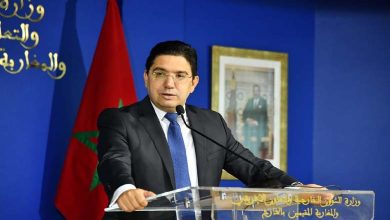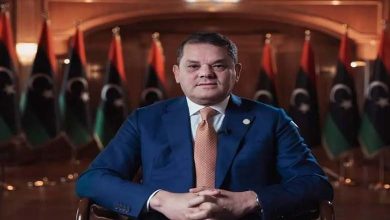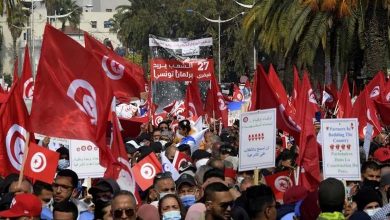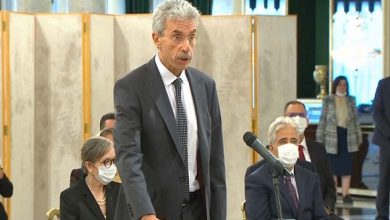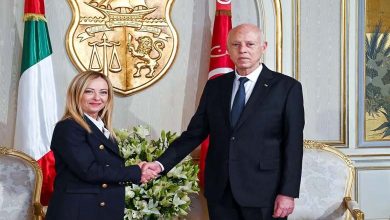Tebboune Distances Himself from Attempt to Maghreb Union
Algeria's attempts to form a bloc with Tunisia and Libya do not absolve it from the responsibility of citing specific objectives primarily related to its hostility towards Morocco in the Moroccan Sahara issue
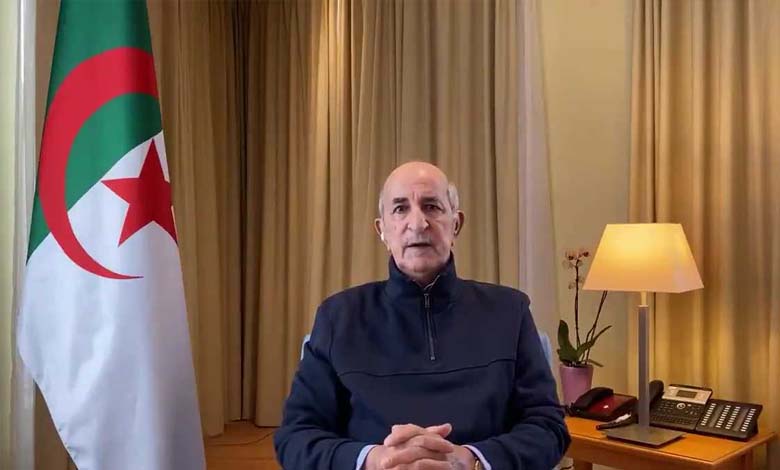
Algerian President Abdelmadjid Tebboune attempted, in an interview last Saturday evening, to distance himself from the responsibility of sabotaging the Maghreb Union project by discussing the Maghreb grouping project that the region’s countries intend to establish, considering it will form a bloc to revive common Maghreb cooperation and coordinate efforts to unify the positions of these countries on many international issues without excluding any party, meaning it is a duplicate version of the union project that aims for the same goals and brings together the region’s five countries.
The Arab Maghreb Union is a real, legal, and historical entity that derives its legitimacy, existence, and permanence from the five member states without exception, and therefore, there is no meaning in creating an alternative bloc, so the Algerian justification appears illogical or unrealistic but rather an attempt to thwart the Maghreb dream.
Tebboune‘s statements about not excluding any party contradict what was agreed upon in early March, when Algeria, Libya, and Tunisia agreed to hold meetings every three months, with the first one taking place in Tunisia after Ramadan, with the goal of intensifying and unifying efforts to address economic and security challenges, to the benefit of the peoples of the three border-sharing countries.
The Algerian initiative is considered an attempt to isolate it from its Maghreb environment. Political analysts emphasize that the justifications for planning an alternative Maghreb project are “devoid of foundation and without perspective,” and its only goal is “exclusive,” as long as Rabat has not received an invitation or information about it, while an invitation was extended to Mauritania, which refused to join the project. Mauritania was absent from the Algerian project, which some observers consider Nouakchott’s desire to adopt “neutrality” and distance itself from the crisis between the two countries that have significant economic, political, and security ties with it.
Abdelfattah Elfattahi, a political analyst and expert on the Moroccan Sahara issue, believes that Abdelmadjid Tebboune‘s recent statements about the new bloc are “an escape forward in the face of his country’s moral responsibilities in thwarting the Arab Maghreb project.”
Elfattahi told “Al-Hurra” website that Algeria’s attempts to form a bloc with Tunisia and Libya do not absolve it from the responsibility of citing specific objectives primarily related to a regional dispute with the Kingdom of Morocco through the Sahara issue.
He adds that there are significant differences between the justifications and objectives of the Atlantic Development Initiative as a new project aimed at improving the security and economic situation of coastal and desert countries, and the Algerian plans aimed at “excluding Morocco” and creating a bloc that is “a tool for political employment against the territorial interests of a neighboring Maghreb country.”
Morocco launched the Atlantic Initiative to open the Atlantic facade to the isolated Sahelian African countries from the sea, believing in the importance of maritime openings as a guarantor of increased economic and developmental returns and as a remedy for political stability in these countries.
Last February, the speakers of the parliaments of Morocco and Mauritania issued a statement reaffirming Rabat and Nouakchott’s commitment to the Arab Maghreb Union and emphasized that Maghreb integration was an irreversible choice.
These statements come as member countries face many problems, including security events in the Sahel that directly affect Mauritania, Algeria, and Libya, and the economic and political crisis in Tunisia, as well as the freezing of relations between Morocco and Algeria.
The countries forming the Arab Maghreb Union are Tunisia, Algeria, Mauritania, Morocco, and Libya, with a population of about 120 million people, covering an area of 6 million square kilometers, or 40% of the Arab world’s area, and their external exports amount to $47.5 billion.
According to the founding treaty, the Arab Maghreb Union is based on ambitious goals aimed at promoting the economic sector and unifying foreign visions and positions on international issues. The main objectives stipulated in the founding Charter are to strengthen the bonds of brotherhood between the members and their peoples, to contribute to maintaining peace based on justice and equity, and to pursue common policies in various fields.
One of the main ambitions of the Arab Maghreb Union is to work towards achieving harmony among the member states and to seek to establish close diplomatic cooperation based on constructive dialogue.
However, Algeria has contributed to deepening the artificial crisis of the Moroccan Sahara and exacerbating political differences between member states, thus preventing the advancement of the administrative entity comprising the five countries located in the western part of the Arab world.




